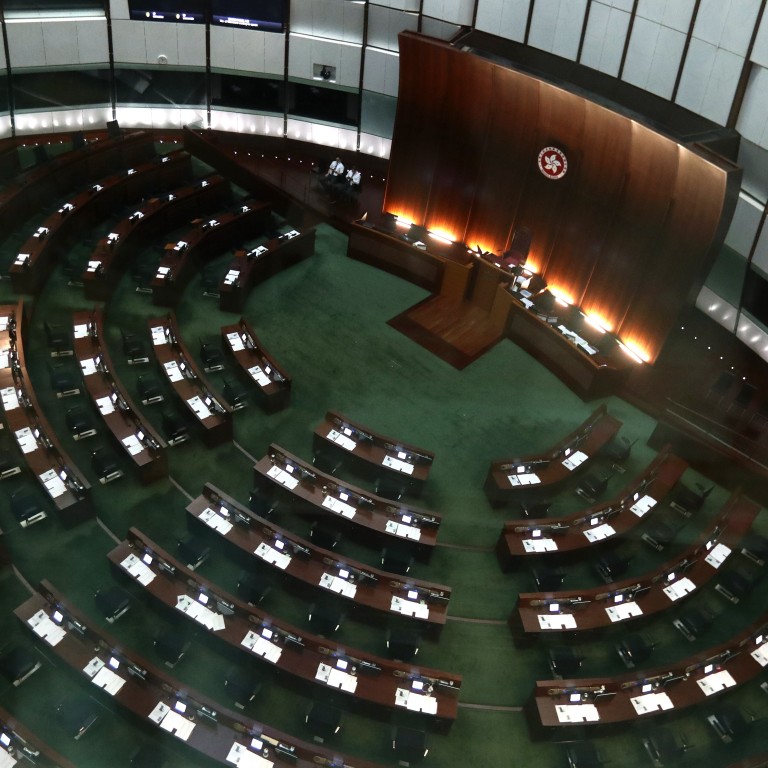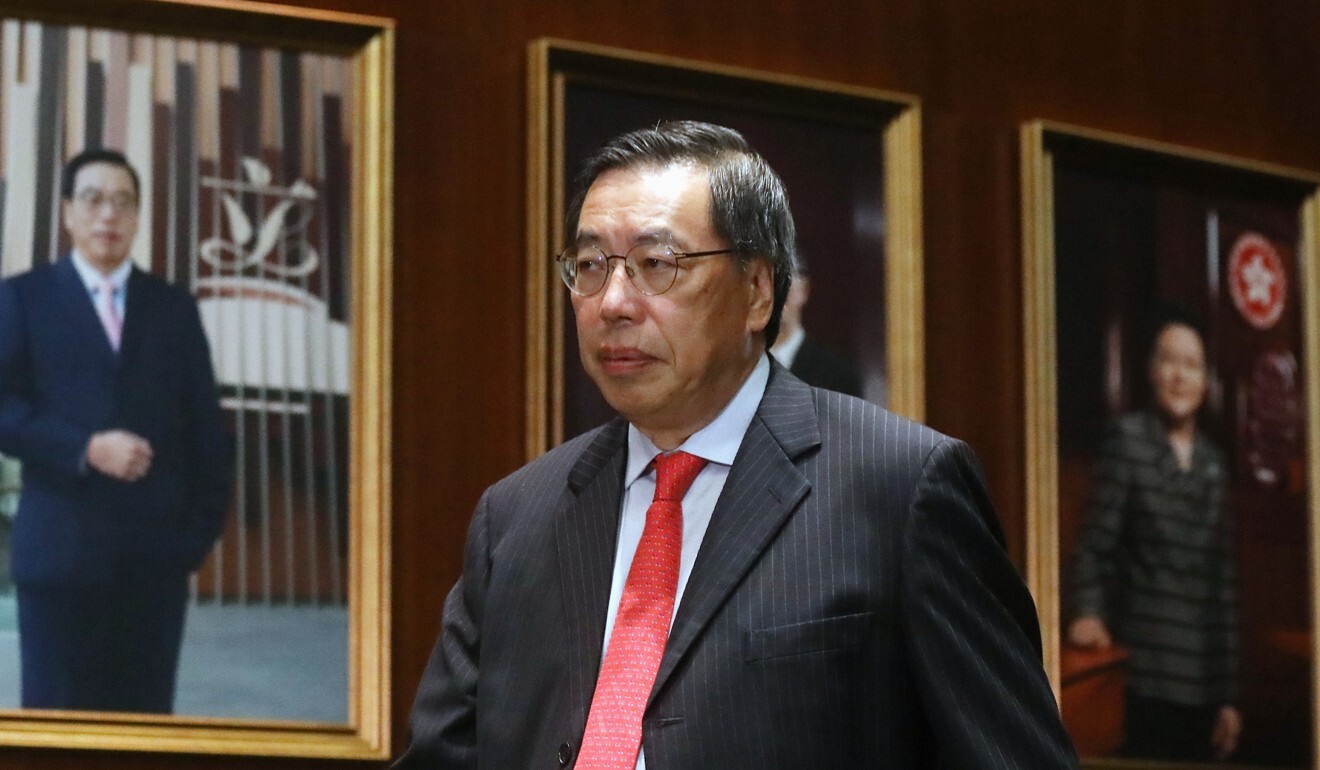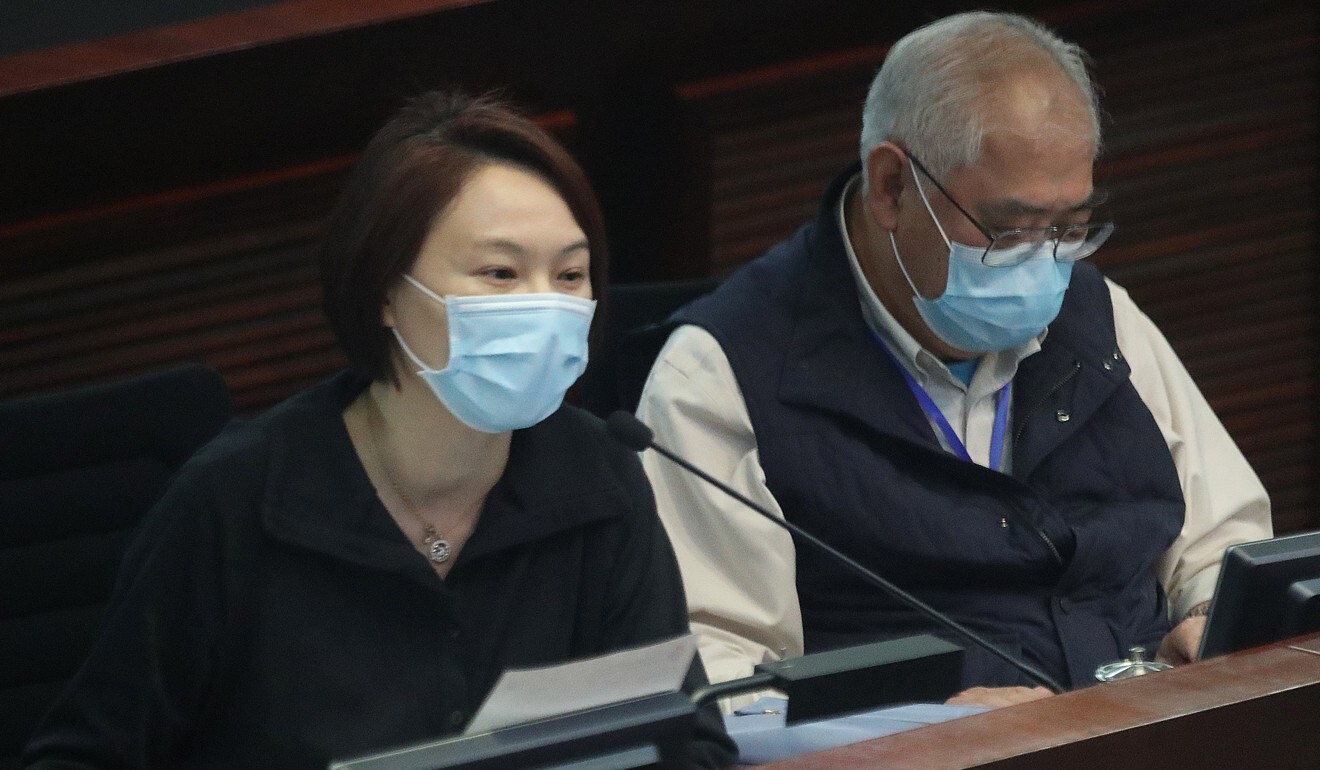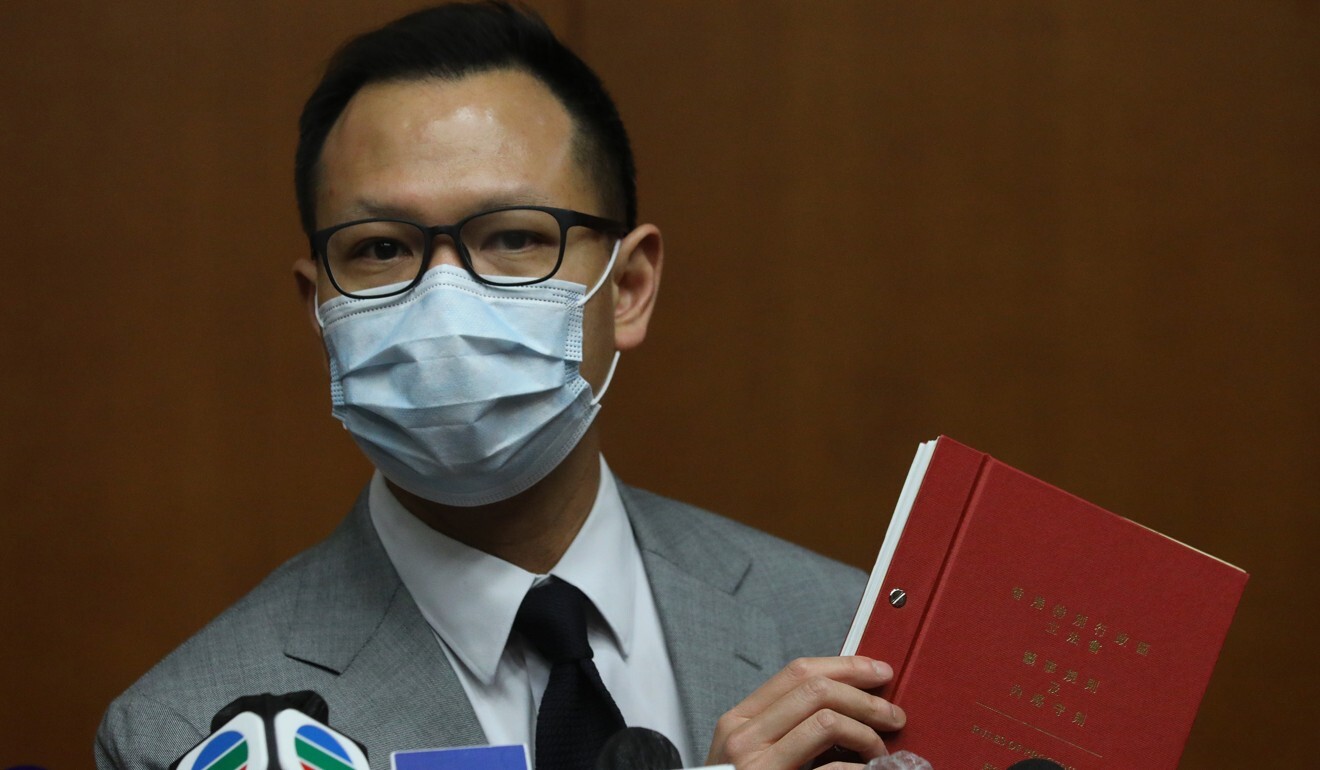
Hong Kong Legco president moves to wrest control of gridlocked House Committee from opposition stalling chair election
- Secretariat confirms Andrew Leung sought external legal advice last month on ‘unprecedented situation’
- But there is no confirmation on whether Leung will issue any directive or unseat pan-democrat Dennis Kwok, who has been presiding over meetings
The president of Hong Kong’s legislature is moving to wrest control of a committee from opposition lawmakers who have been holding up its work with filibustering, as it becomes the centrepiece of a fight between their camp and Beijing’s agencies in charge of the city’s affairs.
In a reply to the South China Morning Post, the secretariat of the Legislative Council confirmed that president Andrew Leung Kwan-yuen had sought external legal advice from a senior counsel in late March, noting the “unprecedented situation” where the House Committee had failed to elect its chair for more than 15 meetings.
A spokesman said Leung was responsible for ensuring that Legco “effectively carries out its constitutional duty”.
He would not comment on speculation that the president would issue any directive or even disqualify Dennis Kwok, the pan-democrat who had presided over the House Committee amid the gridlock. “The most important part is that all legislators from different camps can reach a consensus and complete the committee chair election as soon as possible, so that Legco’s work can resume.”

It is unclear if Leung will take quick action ahead of the House Committee’s weekly meeting on Friday, or if that gathering will end in impasse – much like in the past seven months. The committee helps set the agenda and scrutinises bills introduced into the council, deciding when they are put to a final vote.
Last week, Beijing’s Hong Kong and Macau Affairs Office (HKMAO) and its liaison office in the city accused Kwok of “misconduct” by paralysing Legco with filibustering tactics. The liaison office pointed to a pile-up of bills and subsidiary legislation, while Kwok’s rivals said he had allowed lawmakers from his camp to speak at length to delay the vote.
The attacks were seen by pan-democrats as a sign of Beijing further tightening its grip over the city.
According to a lawmaker, the legal advice sought by president Leung was on whether former House Committee chairwoman Starry Lee Wai-king – from the pro-establishment bloc and whose term expired last October – could replace Kwok and preside over coming meetings, as opposed to previous advice given by Legco’s in-house lawyers.

In January, Legco secretary Kenneth Chen Wei-on told lawmakers that since Lee was seeking re-election as chair of the committee, it was not compatible with the rules of procedure for her to continue to preside over meetings.
But Chen’s predecessor Pauline Ng Man-wah, who wrote a book on the rules of procedure, suggested that Lee should serve as incumbent chair and deal with normal business at the earlier parts of meetings before moving on to the election at the end.
It is unclear if the president would take the case to the court after receiving the fresh legal advice, or rely on it as a source of authority to force Kwok to step down.
Lee declined to comment on Thursday.
Another source told the Post that in a 10-minute meeting with Kwok on Tuesday – five days after comments by the mainland agencies – Leung had warned Kwok to stop blocking the chair election, hinting that he might intervene otherwise.
Kwok has not responded to a request for comment.

Fellow party member Alvin Yeung Ngok-kiu from the opposition Civic Party described Leung as “shopping around” for suitable legal advice.
“If [the pro-establishment camp] respected Legco so much, they should respect [legal adviser] Connie Fung’s views in the first place, and instead of solving it by a legal way, they should solve it politically,” Yeung said.
Andrew Leung, who is from the pro-establishment camp, has long faced pressure from allies to stop Kwok from filibustering. Proposals floated within Leung’s bloc included asking him to issue a directive to the House Committee to reboot the election, or table a similar way via a motion at Legco’s full council.
Beijing’s liaison office says it has right to handle Hong Kong affairs
There was however no consensus within the pro-establishment camp. Gary Chan Hak-kan of the Democratic Alliance for the Betterment and Progress of Hong Kong, said while he was not opposed to Leung intervening in the House Committee’s operations, he was unclear how that could work.
“He certainly has a duty to ensure Legco’s operations, no doubt about that, but there are different views on the procedures,” Chan said.

Meanwhile, newly appointed constitutional and mainland affairs minister Erick Tsang Kwok-wai said he hoped lawmakers could resolve the issue themselves, so that legislation including the national anthem law – punishing those who disrespect March of the Volunteers – could be passed.
He also said the government would act “in accordance with the law” when deciding the candidacy of applicants in the coming Legco elections.
“So long as you genuinely uphold the Basic Law and support the [Hong Kong] government, there will be no problem,” Tsang said.
Tsang, who during his term as the city’s immigration chief saw a number of pro-democracy activists from overseas barred from entering Hong Kong, also said it was a “conspiracy” that he would disqualify a large number of opposition candidates in the Legco elections in September.
Additional reporting by Sum Lok-kei

